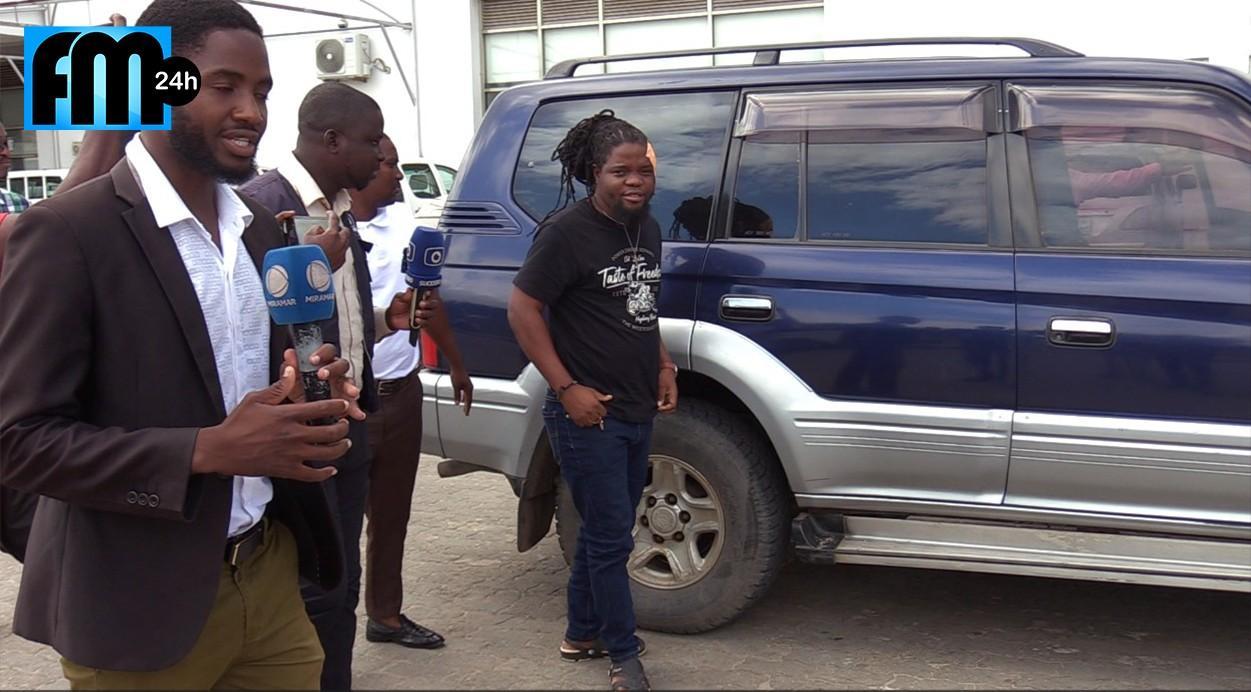Africa-Press – Mozambique. The musician and political activist Joel Amaral, better known by his stage name MC Trufafa, was discharged from hospital on Thursday after recovering from an attempted murder attempt in the central Mozambican city of Quelimane, on 13 April.
Amaral is the head of mobilisation for former presidential candidate Venâncio Mondlane, who was responsible for calling mass demonstrations in order to protest against the allegedly fraudulent results of the general elections held on 9 October.
Unknown assailants hit Amaral with two bullets on 13 April. One of the bullets caused a superficial injury to his arm, but the other struck him in the head. Doctors saved his life at Quelimane Central Hospital.
Minutes after leaving the hospital, Amaral told reporters “as you can see, I’m getting better. I can walk on my own. I would like to thank the Mozambican people for being with me. But I still have to see the doctors because I’m facing a critical situation caused by the bullets that hit me”.
Amaral believes there is no democracy in Mozambique, because those who have different opinions are attacked for no reason. “Democracy is still far from us, it is still far from Mozambican people. When you have different opinions, you are considered an enemy to be targeted. When you have a different opinion, you put your life at risk”, he said.
Amaral also called on the Attorney General’s Office (PGR) to investigate the case “and they must question the country’s Intelligence and Security Service (SISE) and the Police to ask why vehicles owned by the security forces used to appear in my neighborhood to monitor my steps.”
“Right now, I don’t think I’m safe. While I was in the hospital, there were people who used to go to my home claiming to be my relatives. This means I’m not safe to walk in Quelimane City and I feel that I’m still at risk”, he said.
Amaral is now convalescing in what he describes as “a safe place”. He had only revealed his exact whereabouts to his family.
For More News And Analysis About Mozambique Follow Africa-Press






